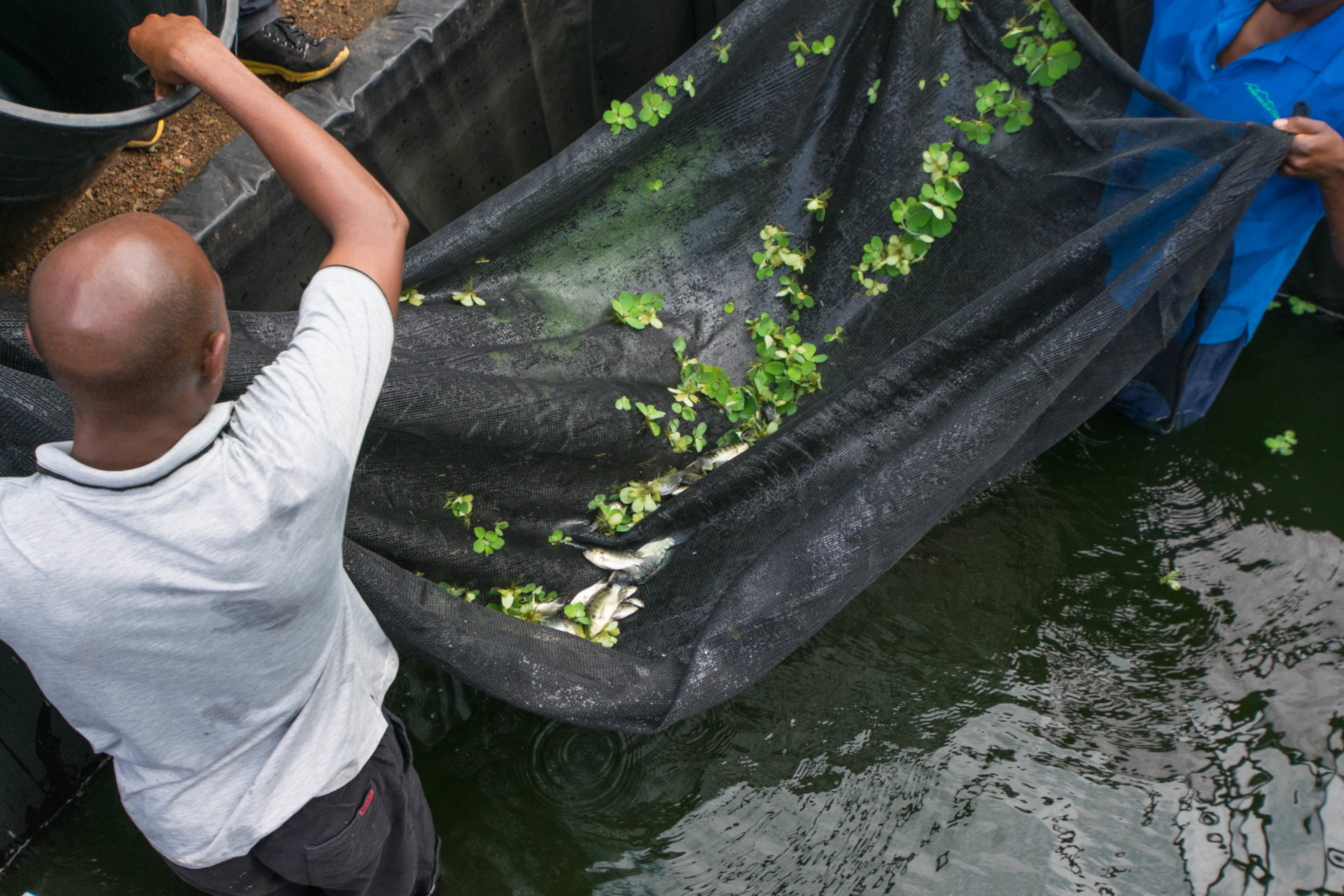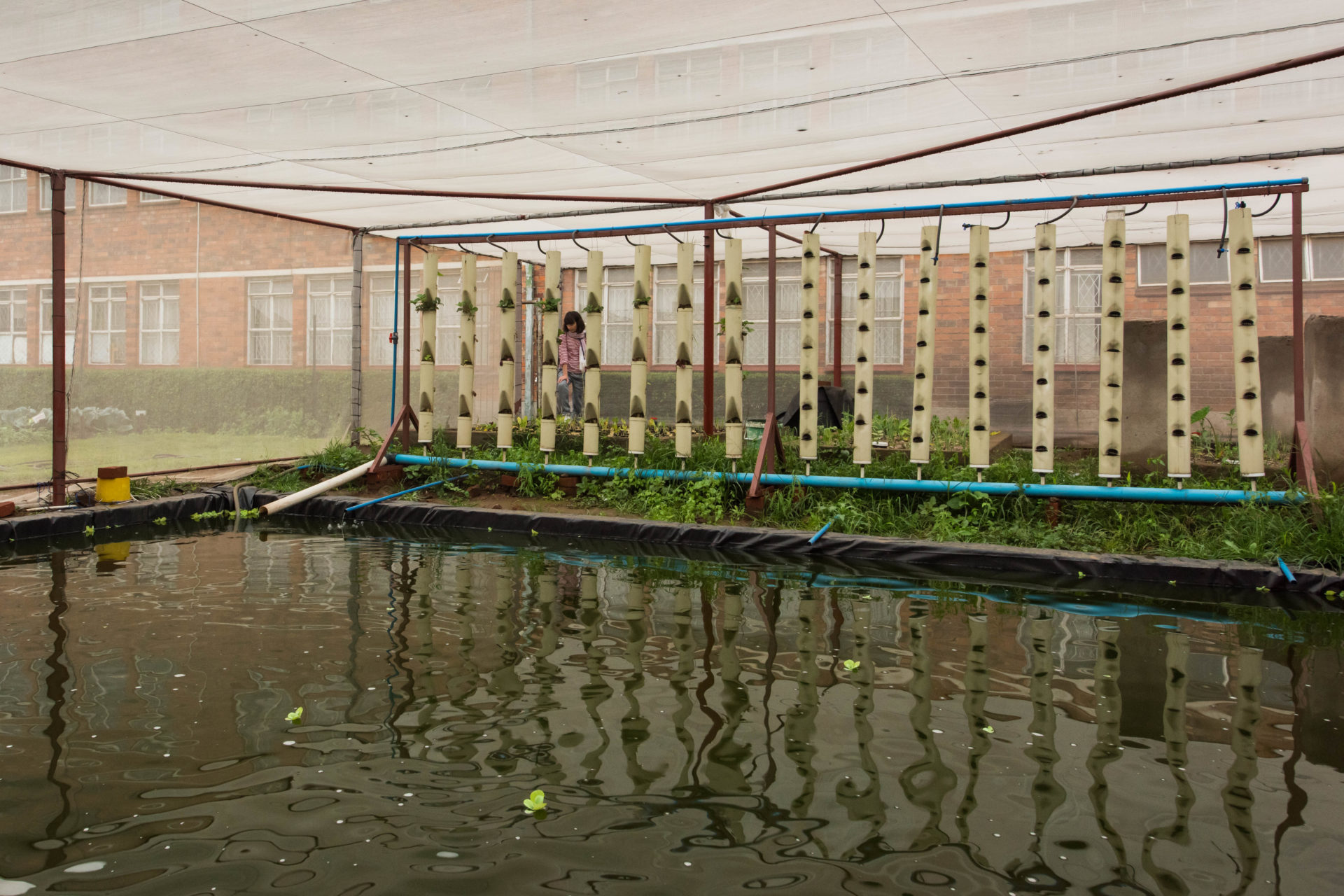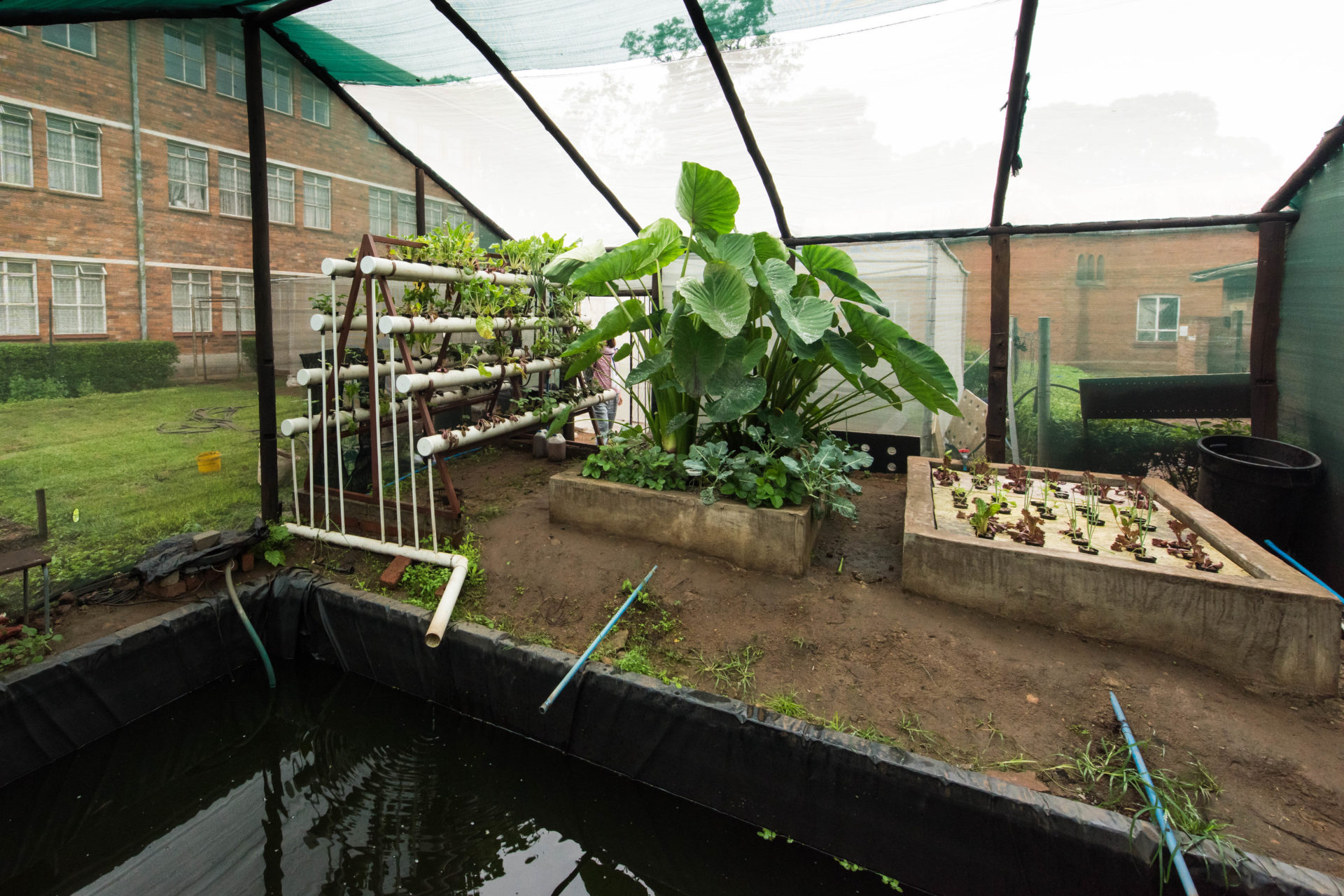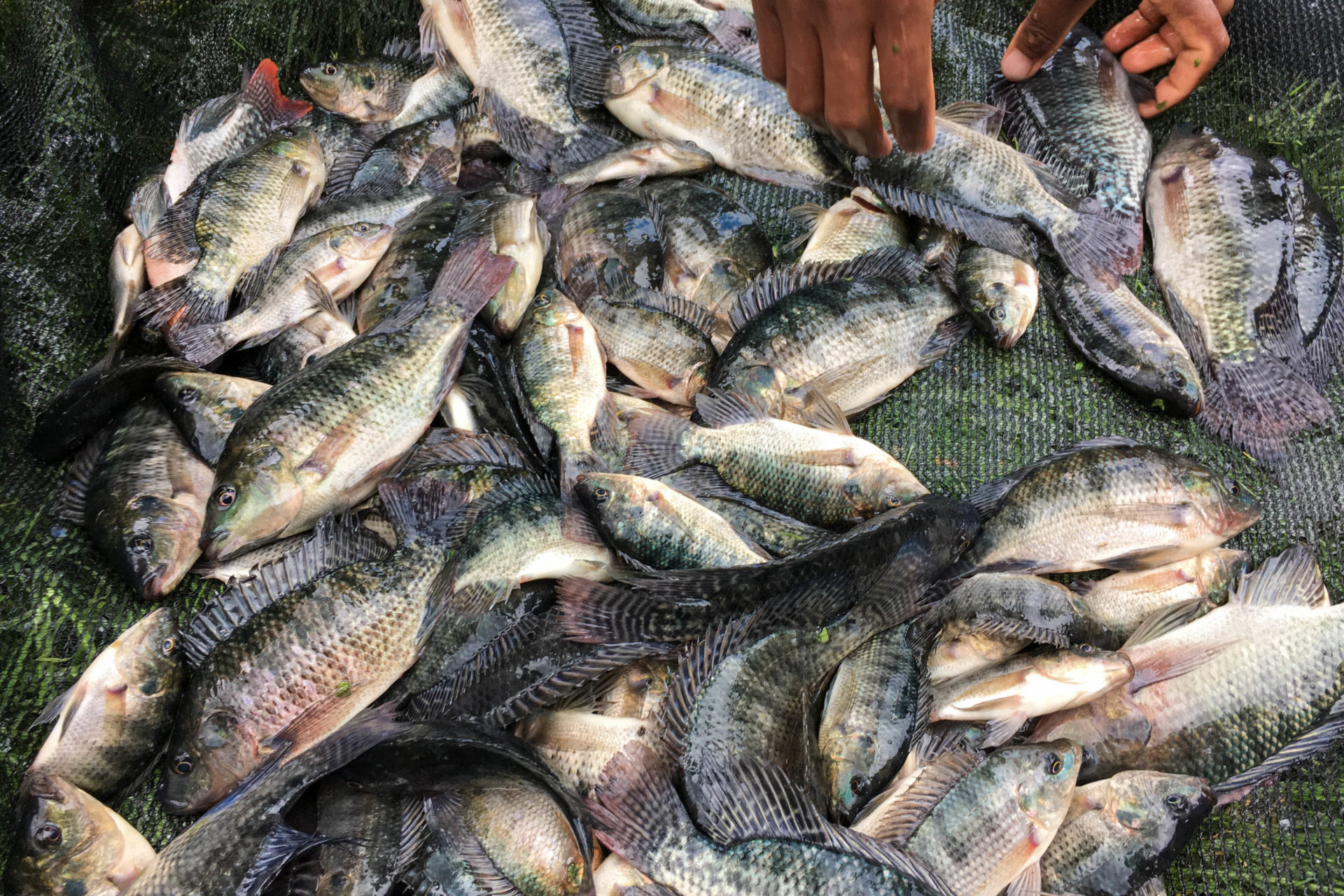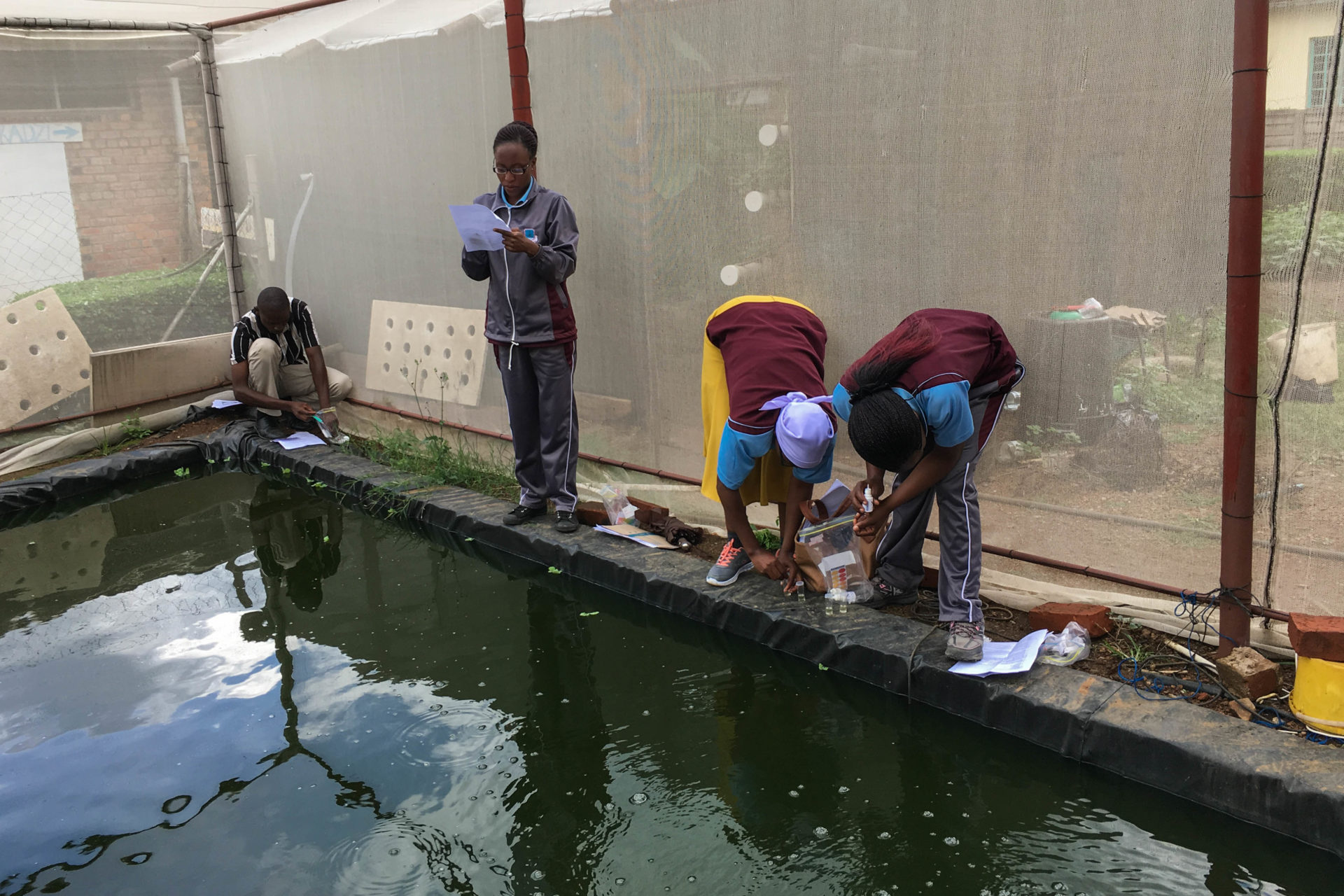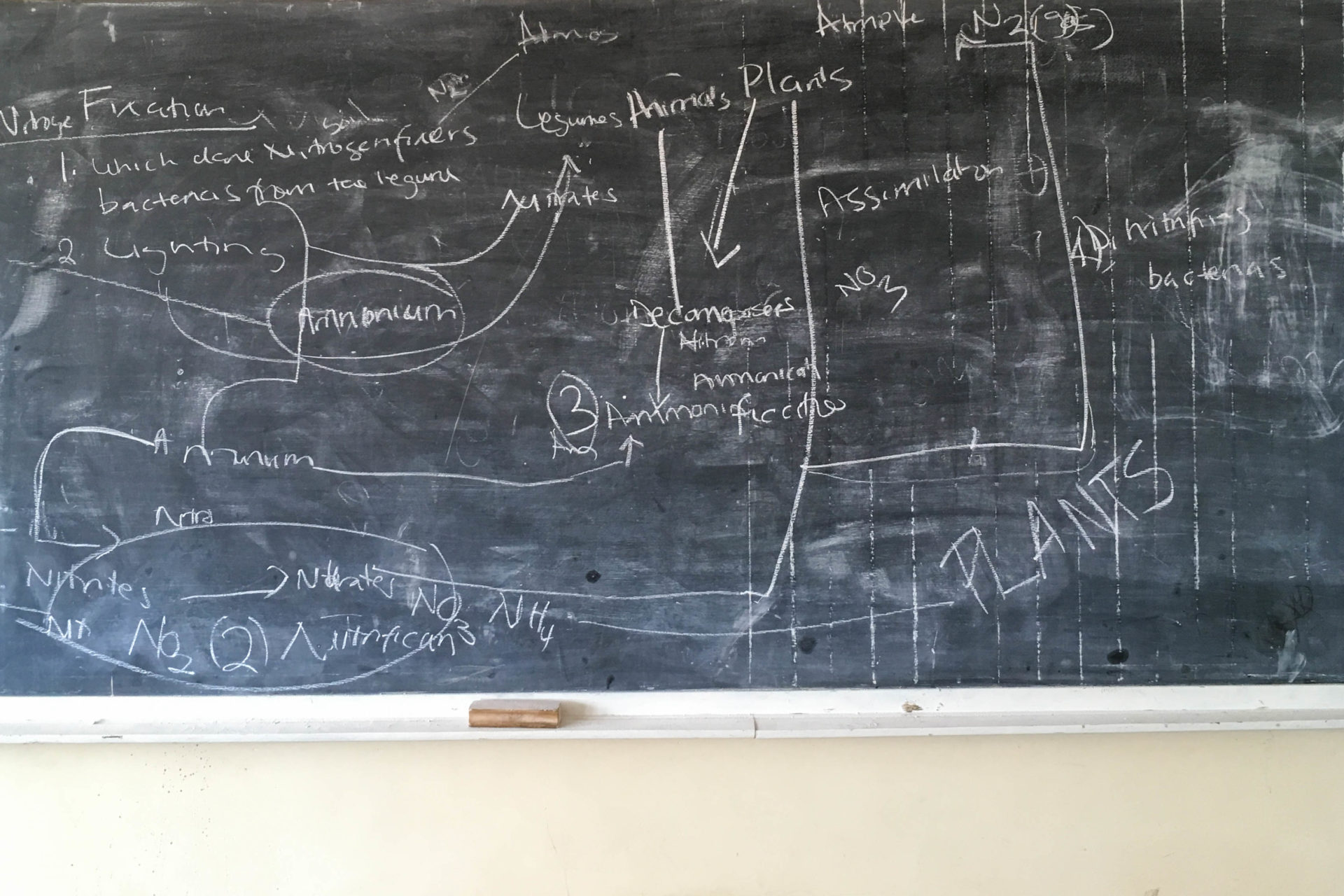In Zimbabwe, SAD is training school teachers in interactive teaching methods using sport and play. As part of this, we are promoting an innovative project that enables school children to use interdisciplinary knowledge and to practice working with natural resources.
Aquaponics is the name of the system that the young people use to learn subjects such as biology, physics, chemistry, geography and IT in a practical and applied manner. This is how aquaponics systems work: fish and plants live in symbiosis in a closed-loop system. The nutrient-rich fish excrement provides natural fertiliser for the plants, which in turn clean the water, thereby helping the fish.
Computers are one of the ways in which the children monitor and control the water quality and nutrient cycle, to ensure the habitat is optimal for both fish and plants.
In total, around 10 to 15 of these solar-powered aquaponics systems will be set up. They provide the children – even in towns – with small ecosystems for developing an understanding of science and sustainable agriculture. They learn to understand and analyse relationships, they develop their sense of responsibility, and they make a positive contribution to their communities with the fish and vegetables that they produce.

